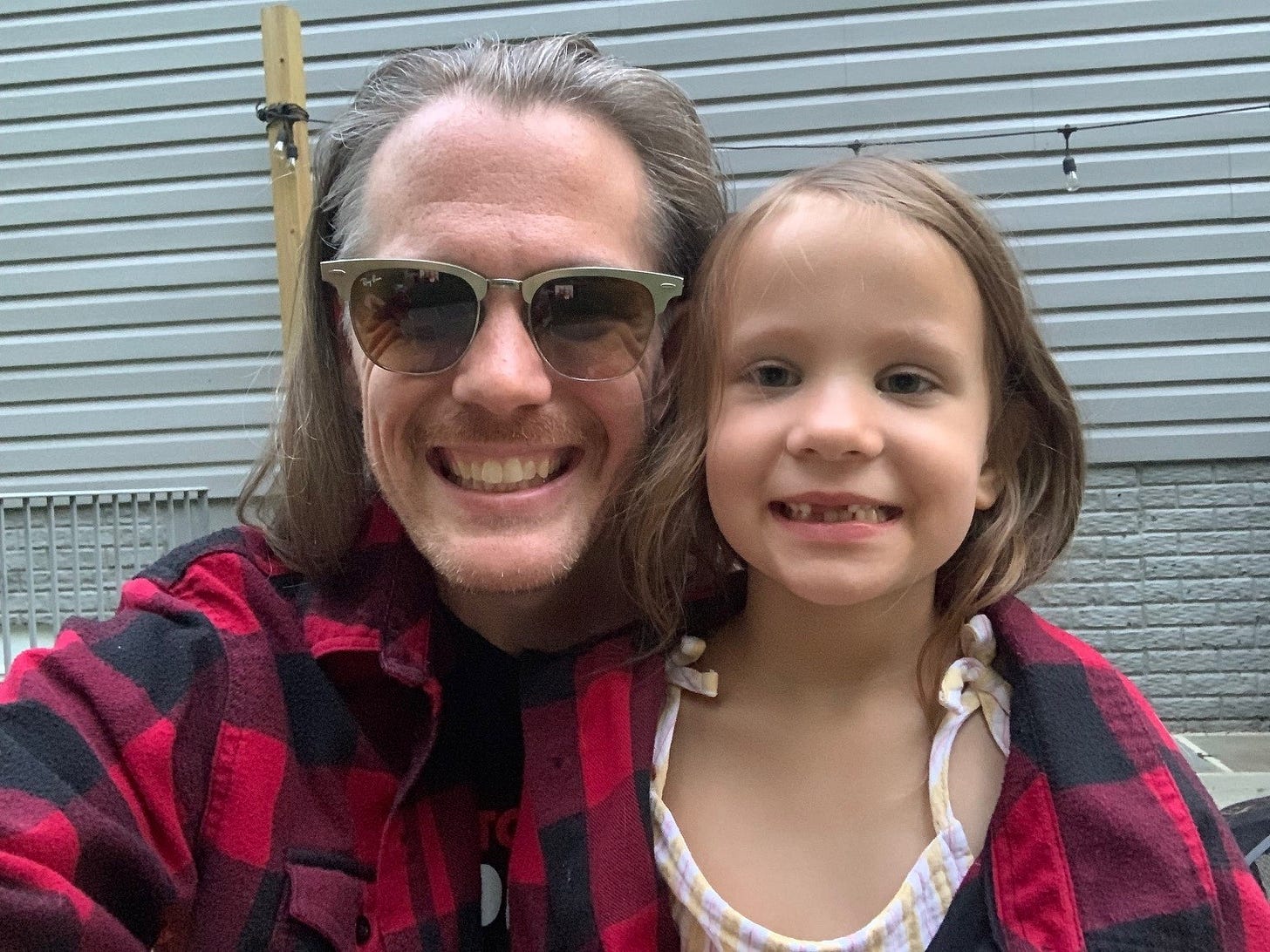Over Parenting and Under Parenting
How to shape good behavior
I’m sitting at the kitchen island as my wife prepares our herd dinner. Tonight, it’s leftovers because, like most parents after a holiday, we are tired and don’t feel like cooking. She’s plating up BBQ chicken, corn on the cob and potato salad. Sadie is at the dinner table whining “I don’t want potato salad.” Julia is leaning on the island to the right of me, and I jokingly tease her about Sadie’s behavior being her fault. Julia responds, “but I learned my behavior from my parents, so it’s your fault.” Then I asked Julia why Sadie was misbehaving. Julia responded with the typical teenage “I don’t know” and I was left to explain.
Sadie is in the middle of a transition period in her development. Recently she stopped taking naps at daycare. Every day around 4, she either wants to take a nap, which throws off her sleep schedule—or she is a whining tantrum mess. As I talked to Julia, I explained the best thing to do was to talk through the behavior and hold her accountable for it. Transition periods are the most difficult to parent because they take the most patience to deal with. Punishing a kid when we are the ones shaping them for society or in this case school and we do that to fit in with our schedule not theirs. We are forcing them to adapt, and adaption can be hard. This is a case where a parent could trick themselves into under parenting or over parenting the situation.
During this period children are typically very whiny and spend most of their time resisting any type of control over them. They typically fight back not realizing that real control of oneself is over their own behavior and actions not the actions of others. If we give them dinner, they want something else. If give them TV time, they want more. This is a moment where a parent needs to hold strong, be consistent, and patient with them. When the child is strong willed the tantrums and whining might get really bad and parents might be tempted to give in to the child. This is what I would call under parenting. Under Parenting is when the parent does what’s best for themselves or others in the environment but not the child. Giving in to a child’s demands in this battle for control can shape them into believing their bad behavior can yield the results they want. Sadie didn’t want her dinner, if I was under parenting, I may have taken pity on my little girl and made her something different, but I want Sadie to understand there is a proper way to behave. If she doesn’t like the dinner, she can use her words and reason and ask for something different. If I teach her that bad behavior will be rewarded, she will learn and use it to her advantage in the future.
On the flip side to this is over parenting. Over Parenting occurs when the parent is trying to teach the lesson that bad behavior will not be rewarded but they teach it through force as opposed to patience. For example, if Sadie began whining and I drew a line in the sand immediately saying if she didn’t eat her food she was going to bed without dinner. And if she didn’t listen, I decided to yell, spank, and then send her to her room. If this happens the child might learn that tantrums and whining don’t work but they also learn to use power and force to get others to bend to their will.
When parenting during transition periods balance is crucial. Sadie is extremely strong willed; she needs redline rules and compassion. Her redline rule was to eat her dinner as given to her, if she wanted to throw a tantrum, she must do it in her room. Remaining calm when instituting these rules are crucial. She was stomping around and screaming so I had to take her to her room for time out. I talked sternly but I did not yell. Putting her in timeout teaches her that she can behave however she sees fit but when her behavior affects others, there is consequences to it. Human beings naturally couple and group. They do not like being alone. Sadie does not like to be away from her family so after reflecting she composed herself came downstairs and apologized. This shows extreme growth by Sadie, to not only reflect on the bad behavior but also acknowledge it by apologizing to the rest of the family. The next part is the most important. We accepted her apology and forgave her for the bad behavior, because we know that’s not who Sadie is, it is just a moment she is struggling through.
Thinking about parenting always gets me thinking about politics as both are a way to shape behavior. Parenting shapes children’s behavior and government shapes society’s behavior. And just like how we can over and under parent, so too can the government over and under govern. There are examples of both over and under governing going on in our country at the moment. We are under governing if we do not hold those who instituted and carried out the January 6th coup accountable. We are over governing by pushing to remove the filibuster which is safeguard to our current underrepresented democracy. In both cases the people and their leaders have thrown tantrums, and how we respond to those tantrums will shape our government’s future. We can’t let people break or change the rules because they don’t get their way. Otherwise, they will learn from that behavior and teach others it is acceptable.



